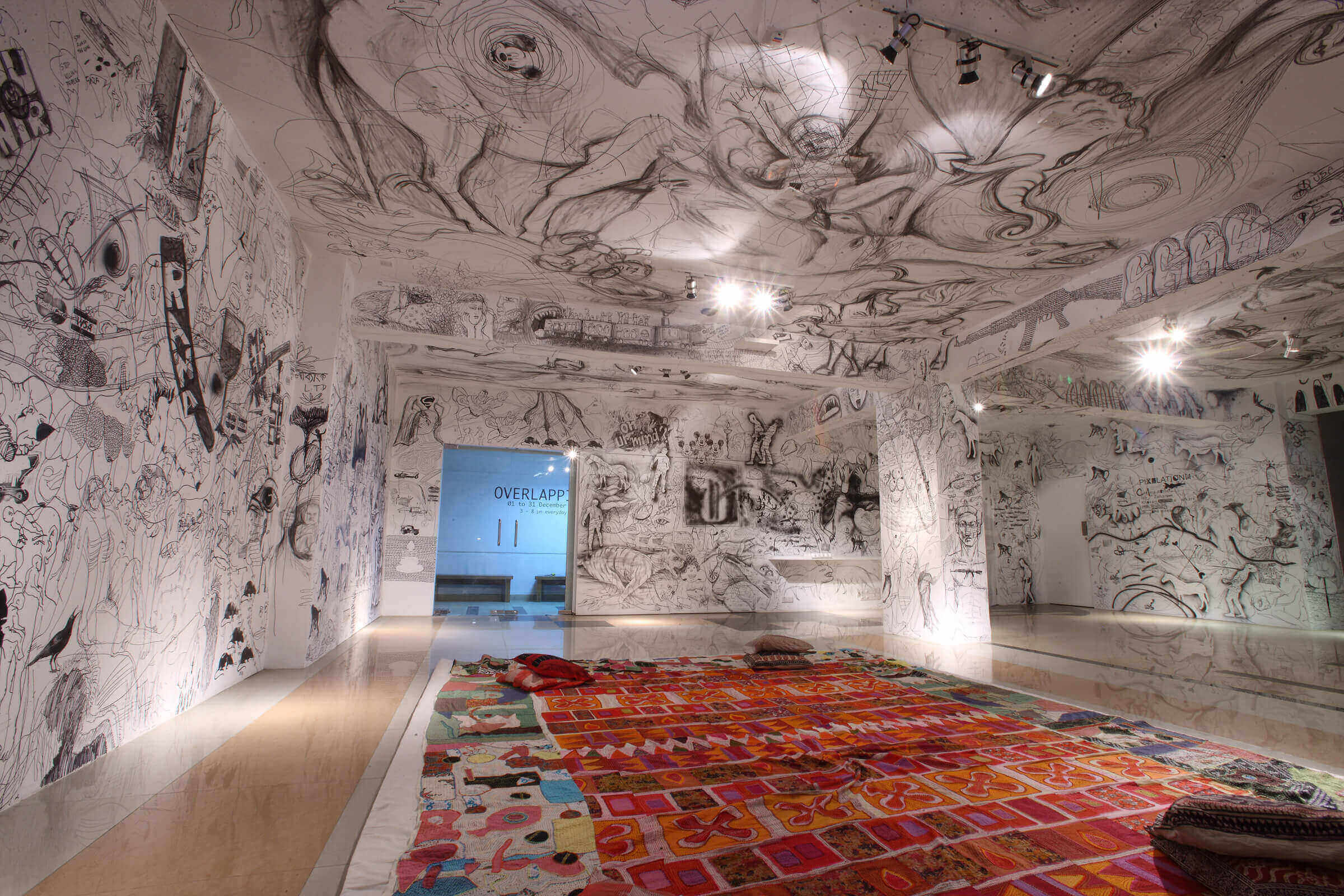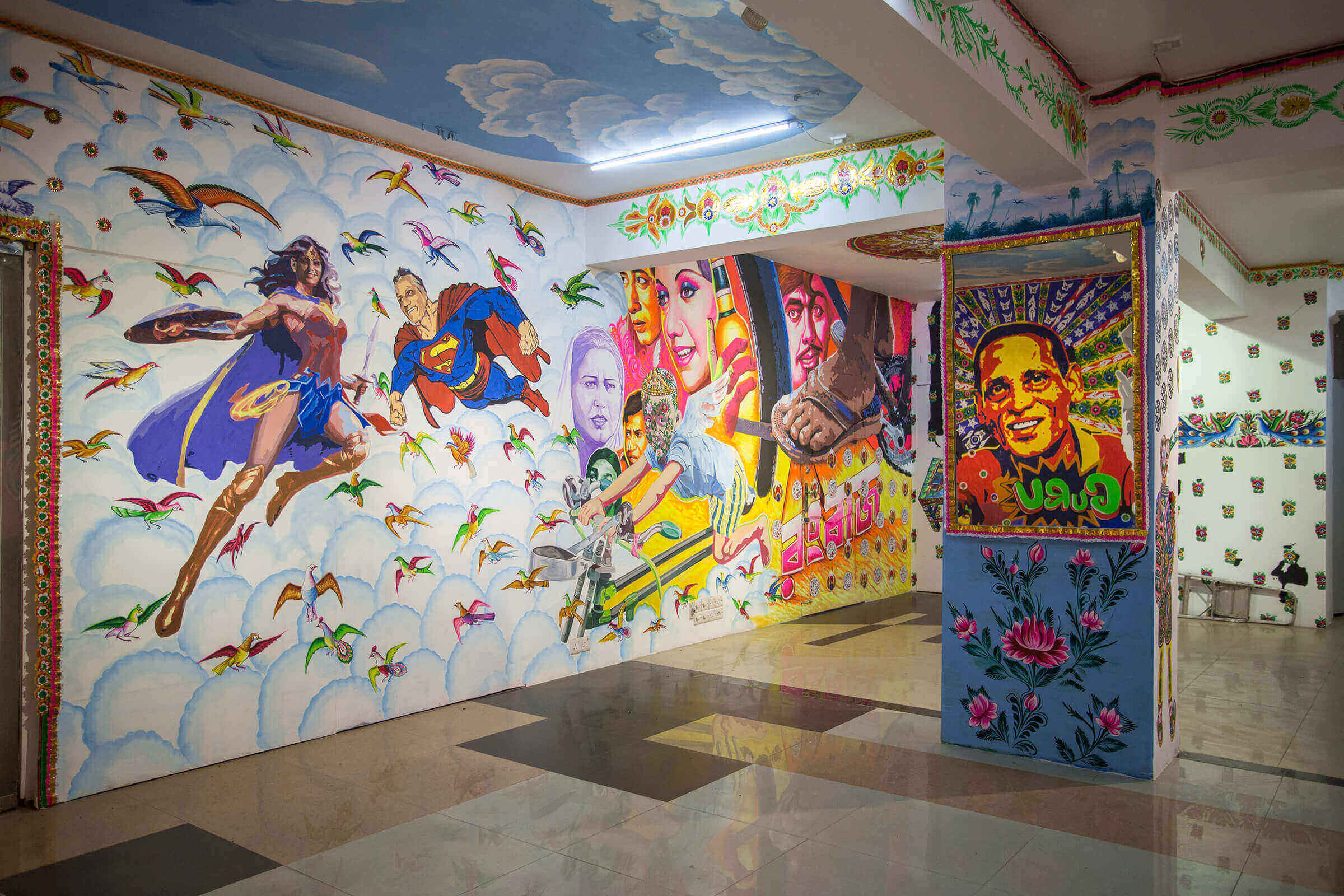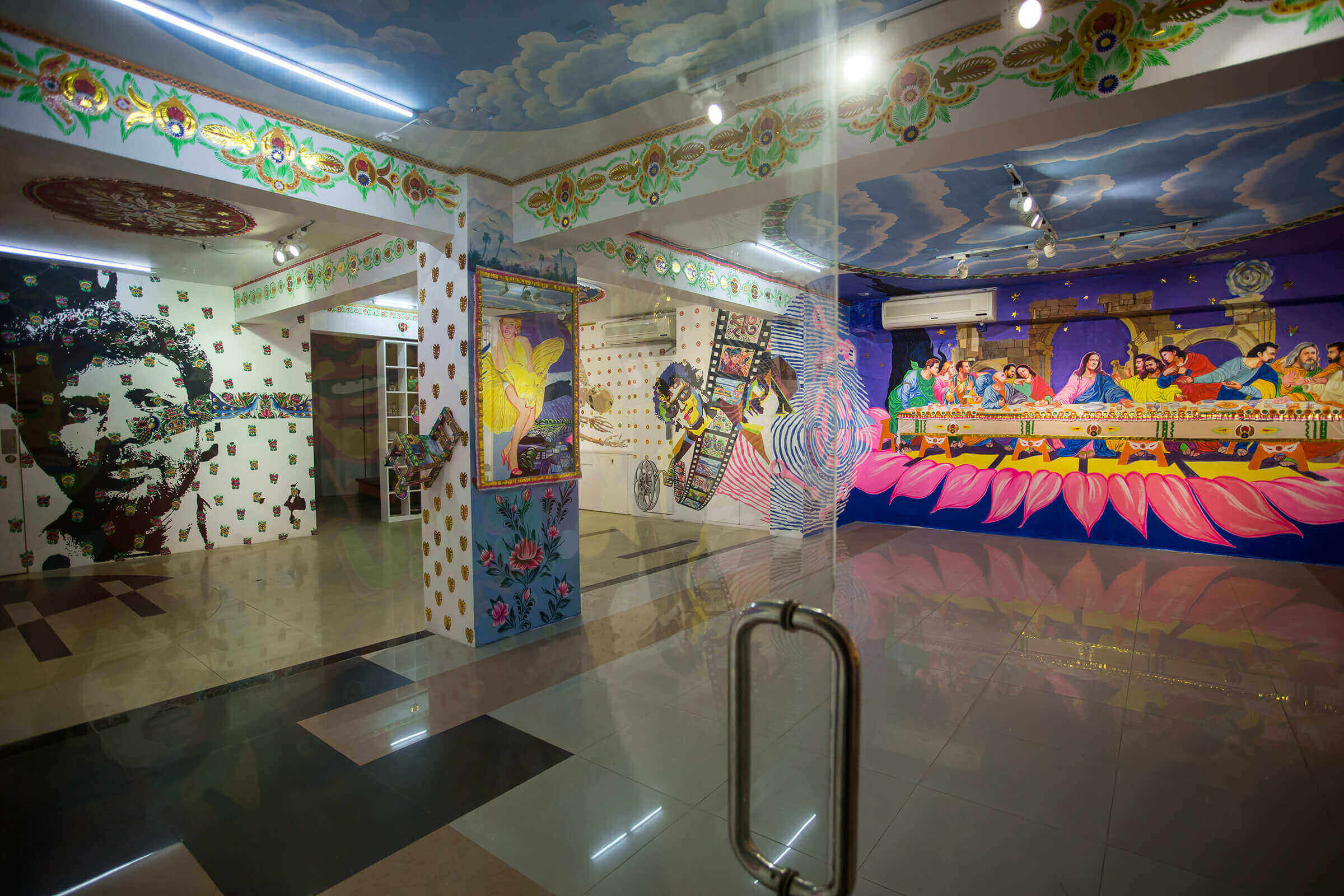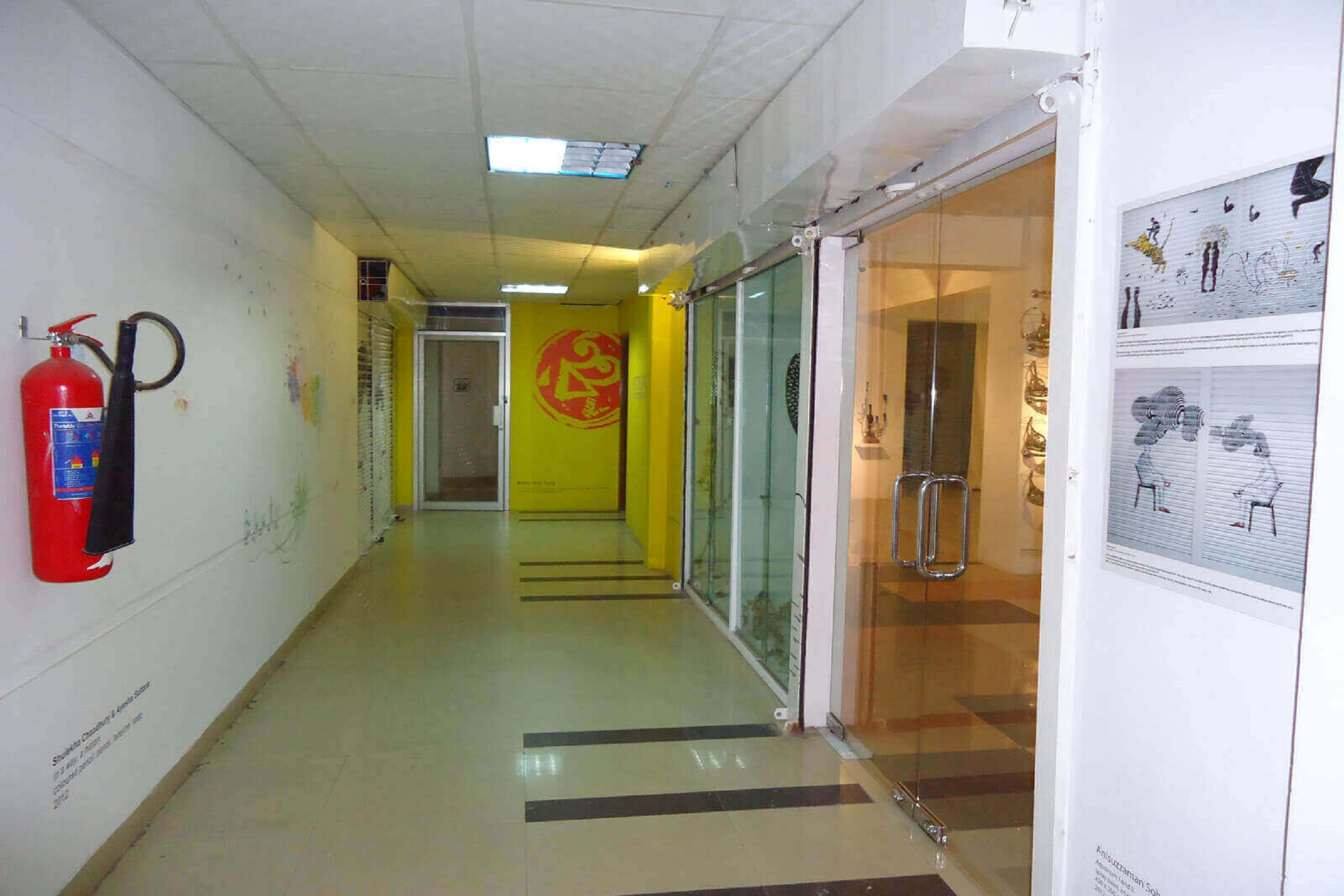BRITTO ARTS TRUST
Britto Arts Trust is an artists’ run non-profit network established in 2002, based in Dhaka but working across the country. “(It) seeds and promotes multiple interdisciplinary practitioners, groups and networks for the Bangladesh art scene. It provides an International and local forum for the development of professional art practitioners, a place where they can meet, discuss, experiment and upgrade their skills on their own terms.”
As the first of its kind in Bangladesh, Britto has become an important alternative platform for artists’- encouraging experimentation and activities that support emerging artists to create a bridge between the contemporary art forms and the local community. Britto has taken Bangladeshi art to larger international platforms such as 54 Venice Biennale and Documenta fifteen.
Bangladesh does not have any museum dedicated to visual art; neither does it have a formal archive either online or offline. The Trust has been trying to organise their own archive for the last three years in an attempt to document their history. They also recognise an urgency for a larger archive on the chronological history of the development of the contemporary art scene of the country and that the Trust has had a significant role in developing.
Website: Britto Arts Trust
Social Media: Instagram

Curating for Culture
Curating for Culture’s mentorship programme for the Britto Archive was facilitated by Art South Asia Project during the COVID pandemic in 2021. The primary intention of this collaboration was to build capacity for the team at Britto Arts Trust, Bangladesh to archive their own work from over the last two decades, address their concerns about curating archival content for public dissemination and using such practices for their upcoming exhibition-publication at the documenta15, 2022. In this process, Curating for Culture were also interested in strengthening the culture for archiving and historical preservation across borders and learning from each other about the relationships between art, history and public engagement in the process.
Through the course of nine months, all participants from Britto Arts Trust were introduced to the basic procedures and concepts behind archiving projects i.e., building an overview and basic lists, developing information architecture, record management and naming of files, preservation and conservation requirements, keyword mapping and digital archive building. The biggest thrill of this learning engagement was to coordinate via online mediums and ensure that communication was thorough both ways. In this process, Curating for Culture and Britto Arts Trust worked with many new tools, and the role of technology became a critical element of the process. Both parties also learnt about the socio-cultural challenges on either sides of the borders between Bangladesh and India, and the project intentions were visualised in response to such understanding.
Website: Curating for Culture
Social Media: Instagram
Ishita Shah
Trained as a designer and historian, Ishita practises as a researcher, educator and curator under the aegis of a personal collective: Curating for Culture. Over the last few years, her efforts have been invested in exploring frameworks for personal and community archiving projects through self-initiated incubation programme. She has also been offering consultation as an archivist at the Pattani Archives (Gujarat), mentoring the Britto Art Trust Archive (Bangladesh), and curating the archiving and publishing project for Venkataraman Associates (Bengaluru). Very recently, She has also curated the publication Biome Diaries and the archiving project for Biome Environmental Solutions Pvt. Ltd.
Due to her keen interest in furthering the creative possibilities for cultural preservation in India and the Global South, She has also curated publications, exhibitions and dialogues in collaboration with several cultural institutions and individuals. She has been the former UNESCO Chair coordinator at Srishti Institute (Bengaluru) and founding archivist and oral historian at CEPT Archive (Ahmedabad).
She is currently pursuing research on the journeys of early women architectural practitioners of India as a Graham Foundation Grantee 2020.




